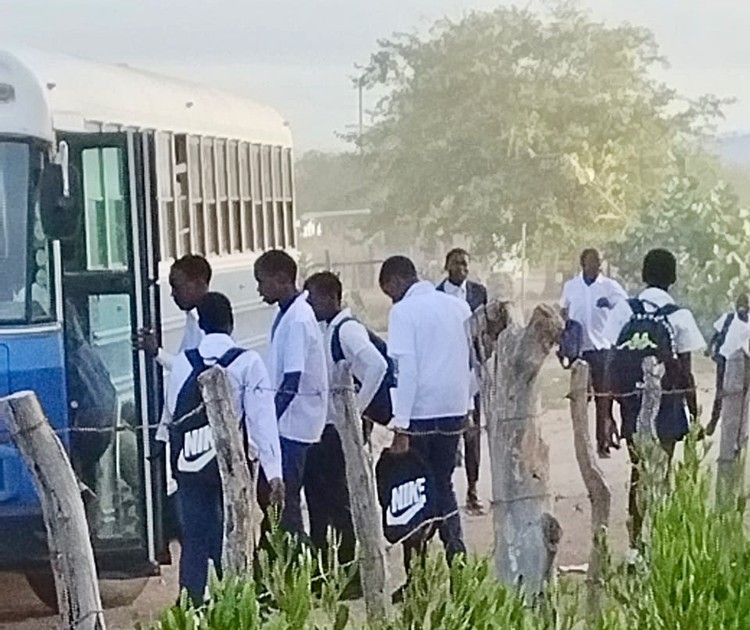Limpopo villagers demand primary school for 400 learners
Community identified land to build a school four years ago in Tshikhudini
Every day six 65-seater buses take primary school learners and five buses transport high school learners to the nearest schools to Tshikhudini village in Limpopo. Photo supplied
“I wake up around 4am, preparing my two grandchildren in grade R for school,” says Florah Mashathini from Tshikhudini village in Limpopo. “If I do not wake up that time, the children will not make it for the buses to school.”
Mashathini, aged 60, then walks with her grandchildren to the bus stop, a kilometre away.
There are about 400 primary school learners using scholar transport to get to the nearest school in Folovhodwe, ten kilometres away. The 65-seater buses are full when they leave the village at around 6am. There is standing room only for some. Six buses transport primary school learners and another five buses take secondary school learners.
Tshikhudini, 70km south-east of Musina, needs its own primary school. But the Vhembe East district education office has been silent since it asked for recommendations for a site for the school in 2019, after parents requested a primary school.
The Musina municipality and the Manenzhe tribal council confirmed the need for the school in letters to the district in June 2019.
“We have been following up with the Vhembe East district office but it keeps giving us empty promises,” said traditional leader Vha Musanda Vho Tshikhudo Piet Munyai.
Mike Maringa, Limpopo Department of Basic Education spokesperson, said parents must follow up with the district office and escalate the matter to the province in writing.
Stephanus Tshinyelo, a community leader, says the village was established around 2003 and now has more than 1,000 households. There are also two more recently established villages nearby – Tshipale and Munungufhala.
“The number of learners from this area will increase and this warrants a school in the area. There is a five-hectare piece of land that we have identified for building a primary school,” said Tshinyelo.
Support independent journalism
Donate using Payfast

Don't miss out on the latest news
We respect your privacy, and promise we won't spam you.
Next: Constitutional Court: where are the online records?
Previous: Protesters block main road in Cape Town, demanding electricity
© 2023 GroundUp. This article is licensed under a Creative Commons Attribution-NoDerivatives 4.0 International License.
You may republish this article, so long as you credit the authors and GroundUp, and do not change the text. Please include a link back to the original article.
We put an invisible pixel in the article so that we can count traffic to republishers. All analytics tools are solely on our servers. We do not give our logs to any third party. Logs are deleted after two weeks. We do not use any IP address identifying information except to count regional traffic. We are solely interested in counting hits, not tracking users. If you republish, please do not delete the invisible pixel.

